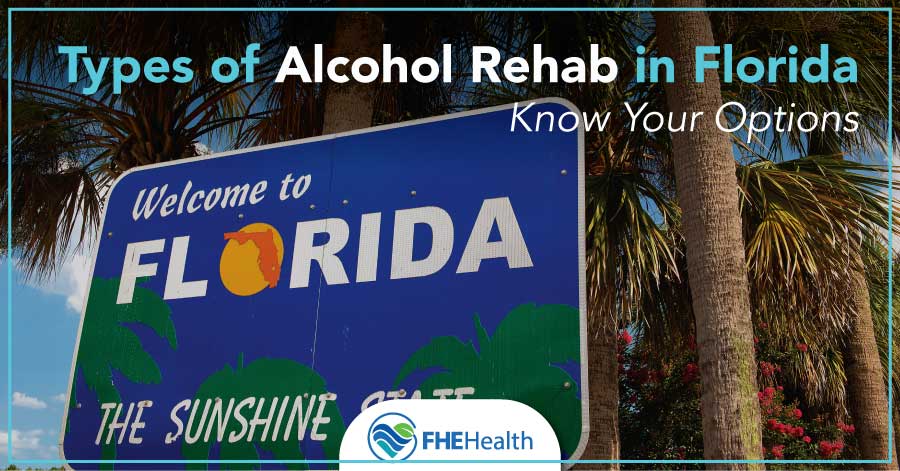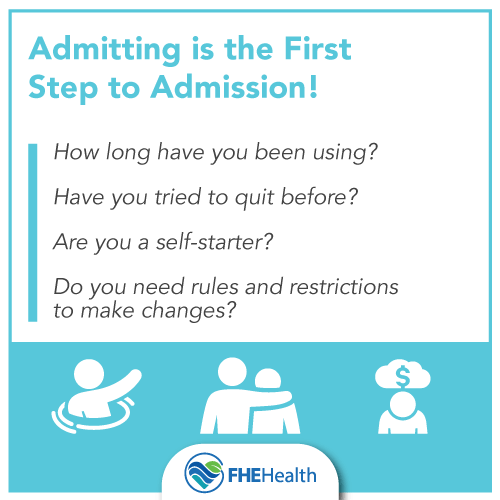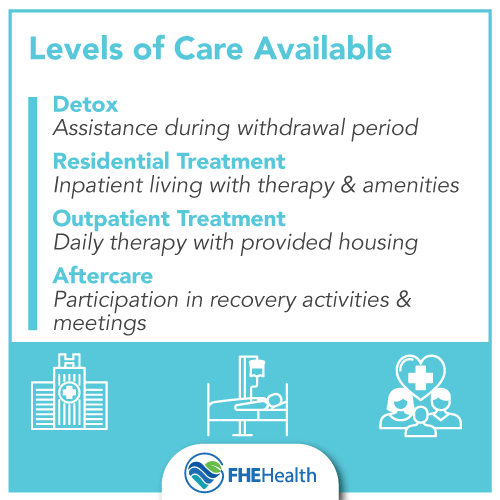
Alcohol addiction can affect your life negatively in many ways, and seeking treatment is the first step toward recovery. You may have tried to stop on your own using the cold turkey method, and perhaps you’ve participated in recovery groups. The problem with this approach is that all the triggers that affect your drinking are still present in your life. Addiction can destroy relationships and ruin careers. Participating in professional rehab care can stop the downward spiral and help you understand and recover from your addiction.
Rehab treatment includes medical supervision, drug therapy and behavioral therapy. For many, inpatient treatment is the most effective choice for overcoming alcohol addiction. An effective rehab team has physicians who can treat the physical effects of drinking and therapists who can help you explore the reasons you became addicted. You’ll also learn the best way to structure your life to achieve continuing sobriety. At FHE, our addiction specialists work with you to create a customized treatment plan that emphasizes your unique needs and circumstances.
Making the decision to pursue rehab for alcohol abuse is a big choice and certainly one that should be commended. Around 90 percent of those who need treatment don’t get it, so taking those first steps forward greatly improves your odds of successful sobriety.
However, making the choice to go to treatment and actually getting the help you need aren’t one and the same. Treatment comes in many different forms, and before you commit to a rehabilitation center, it’s essential to choose the one that’s right for you.
Florida, in particular, is known for its wealth of rehabilitation resources and is a regular destination for those from out of state who want a fresh start. However, all alcohol rehab centers in Florida are not equal. Don’t choose a place at random; learn more about the options available to you to properly determine which opportunities will best increase your chances for success.
Admitting Your Situation Is the First Step
 If you are considering getting help and want to weigh your options, you first need to accept where you are in your addiction and how you got to your current point. There’s no use in denying the reality of the situation, misrepresenting the extent of your use or anything else that could interfere with your selection. Instead, you need to be honest with yourself and fully acknowledge what kind of care would make the most sense for you.
If you are considering getting help and want to weigh your options, you first need to accept where you are in your addiction and how you got to your current point. There’s no use in denying the reality of the situation, misrepresenting the extent of your use or anything else that could interfere with your selection. Instead, you need to be honest with yourself and fully acknowledge what kind of care would make the most sense for you.
When considering the factors that should influence your choice, keep these questions in mind:
- How long have you been using? A long history of use often requires a more intensive rehabilitation experience to ensure a successful recovery.
- Have you tried to quit before? If you have attempted to quit before with third-party help, you are encouraged to try a different rehabilitation center and a more comprehensive program than your previous attempt.
- Are you a self-starter? If you’re not the kind of person who can make challenging life choices and stick with them without outside help, you may require more structure and guidance in a treatment program.
- Do you need rules and restrictions to make changes? Without oversight, some users are more likely to fall back into their old ways. If this sounds like you, continued support after inpatient treatment, such as access to a halfway house, may be required to ensure you fully commit to recovery.
It’s important to note that there is no one right answer, and what works for some people may not work for others. This also means that what your friend chose may not be right for you, so do your best to limit the influence of anecdotal evidence.
Levels of Care in Alcohol Rehab Centers in Florida
 Alcohol treatment comes in different forms and can be made up of several steps or levels. Some rehab programs specialize in one type over another; others include a full spectrum of care. These steps generally include:
Alcohol treatment comes in different forms and can be made up of several steps or levels. Some rehab programs specialize in one type over another; others include a full spectrum of care. These steps generally include:
- Detox: The first step in treatment for most people, detox is a process that helps users overcome the physical components of addiction. Detox is highly recommended for alcohol users due to the potentially dangerous side effects of alcohol withdrawal.
- Inpatient Rehabilitation: Also known as residential rehabilitation, inpatient treatment is a process that spans several weeks or months and involves living in a dedicated treatment center to ensure sobriety and a commitment to recovery.
- Outpatient Rehabilitation: Generally the next step after inpatient rehabilitation, outpatient rehabilitation does not involve living in a treatment center; instead, patients attend programming on their own time while living independently. Outpatient programs vary and may include partial hospitalization and intensive outpatient care, providing an expanded step-down approach to better help those in treatment re-acclimate to normal life. Sober living houses are an option during this time.
- Aftercare: Recovery doesn’t end after treatment. Aftercare programs can include things like support meetings and other sober activities to encourage further engagement in sobriety.
Some recovering users may only require an option like detox, while others are best served by moving through every step as appropriate. Instead of choosing what’s easiest, you need to decide what is best for you and your individual needs.
Weighing Your Options
Due diligence is an essential part of decision-making in all aspects of life, and choosing a rehabilitation format is no different. Instead of landing on the first promising center you see, consider all of the factors that go into a successful treatment.
Location
Ostensibly, the location should be among the least important criteria when choosing an alcohol rehabilitation center in Florida. You don’t necessarily need a center close to home; in fact, this is often discouraged due to the challenges of severing ties with your old life. Even if you don’t live in Florida, one of Florida’s many recovery facilities may be a good choice for you.
Duration
Even though balancing things like work and school with getting help can be a challenge, it’s essential to go to treatment as long as necessary, not just as long as it’s convenient. A shorter program may seem ideal, but recovery is not a quick process and, in most cases, the longer the treatment, the better the results.
Program Structure
Not all rehabilitation programs offer treatment for all situations. Before enrolling in treatment, it’s very important to know what steps are available to assess the extent of the continuum of care properly.
A program that offers detox, inpatient and outpatient programs will likely be more supportive and effective than one that only focuses on one aspect. Doing detox in one place and inpatient somewhere else, for example, can result in a fractured approach to treatment.
At the very least, even those who feel a need to bypass inpatient rehabilitation and start at outpatient treatment should complete detox. The side effects of alcohol withdrawal can be dangerous and potentially fatal, so professional oversight is highly encouraged for those attempting to recover from an addiction to alcohol. Outpatient care is truly designed to follow inpatient care, so be cautious about choosing this avenue at all, even if it seems like an easier and more convenient choice.
Cost
Cost is unfortunately a large factor for many people considering treatment. Not all insurance plans pay for addiction care, and those that do may have limited coverage.
The expense of rehabilitation often influences whether and how a person gets help, but this doesn’t necessarily need to be the case. Many excellent programs offer scholarships to reduce or eliminate expenses, making it easier to afford care.
Even though finances should always be a priority, your health is priceless. If there are any other resources you can consider to help pay for treatment, it may be worth it to do so.
Aftercare Options
The road to recovery doesn’t end when initial treatment does. To improve your chances of success, you should stay involved in the recovery community. In choosing a treatment center, be sure to consider what comes next.
Program Features
The opportunities provided by a rehab facility can have a direct effect on the quality and appropriateness of care for each patient. Some programs are very traditional, with options that include counseling and little else. Others emphasize holistic treatments such as yoga, acupuncture and art therapy or offer unique diagnostic tools that can help facilitate a more individualized course of care.
As an area that is considered a recovery destination, South Florida, in particular, offers an extensive network of support groups to keep recovering users on the right track.
Making the choice to go to rehab is the first step on what will be a long road. However, the program you choose can play a direct role in how likely you are to succeed. A full continuum of care in a supportive program with a proper approach to treatment can be highly influential in your recovery and your chances of relapse.
Recovery isn’t easy, and it involves a lot of time and effort. You owe it to yourself to take the process seriously and commit to making a true change.
What Can You Expect During Alcohol Rehab?
Here are the three initial stages you can expect to go through once you’ve decided to seek treatment.
Intake
The best alcohol rehab treatment plan begins when you seek help and continues after the rehab treatment. During intake, a counselor will help determine what kind of treatment is the right fit for you. Your mental and physical condition and specific needs will be considered.
Detox
This stage of rehabilitation includes detoxifying your body and eliminating all traces of alcohol. Your doctor can prescribe drugs that help alleviate common withdrawal symptoms such as nausea, tremors and even seizures. During this time, you’ll need to stay hydrated and get plenty of sleep.
Treatment
During treatment for alcohol addiction, your body is stressed. Your doctor will emphasize healthy eating and exercise, and you may receive vitamins and supplements. A qualified therapist will also help you explore the emotional factors that lead you to drink and identify situations in your environment that could encourage relapse.
Recovery Support
Although life can get busy, attending follow-up appointments is well worth the time and effort. Your treatment may include ongoing drug therapy, and it’s important to continue any prescriptions your doctor has given you. As you move through the process, your ongoing recovery plan may also be adjusted.
Professional Rehab Care
Medical supervision is vital to overcoming alcohol addiction, whether you opt for inpatient or outpatient treatment. Depending on your level of addiction, detoxing from alcohol can cause debilitating withdrawal symptoms. Although only one in 10 people who are addicted seek professional treatment, drug abuse disorders, including alcohol, can be effectively treated with medications. Inpatient treatment allows your physician to immediately give medications as needed, including those that help alleviate the symptoms of withdrawal.
FHE Health is one of the best alcohol rehab centers in Florida, and our medical professionals can help you kick the habit with inpatient or outpatient treatment. Take the first step in overcoming your addiction by calling FHE today at (833) 596-3502. You can speak to a counselor anytime, 24/7, and our compassionate team of medical professionals is ready to help you change your life for the better.






